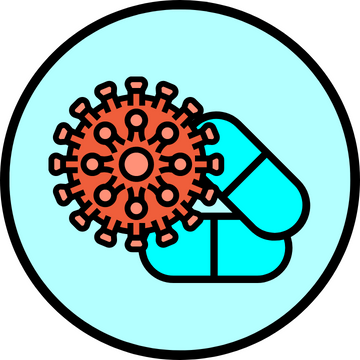HIV
What is HIV?
HIV stands for Human Immunodeficiency Virus. ‘Immunodeficiency’ refers to the weakening of the immune system by the virus. If it’s not treated, it can weaken and damage your body’s defence system (the immune system) so that it can’t fight off infections. HIV treatment stops this happening.
If someone’s immune system is damaged by HIV (usually over many years), they may develop one or more serious infections and illnesses. Sometimes this is called an AIDS diagnosis. AIDS stands for acquired immune deficiency syndrome, but the term isn’t used very often now. Late-stage or advanced HIV is sometimes used instead.
Almost all people living with HIV who are diagnosed early enough and have effective treatment won’t go on to develop an AIDS-defining illness.
How can I get HIV?
HIV can be passed through the following body fluids:
- blood
- semen (including pre-cum)
- vaginal fluid
- anal mucus
- breast milk.
People can get HIV through:
- vaginal/frontal and anal sex without a condom
- sharing drug injecting equipment
- sharing sex toys
- mother-to-child transmission during pregnancy
- coming into contact with contaminated blood
HIV cannot be passed on by:
- kissing
- hugging
- shaking hands
- sharing space with someone
- sharing a toilet
- sharing household items such as cups, plates, cutlery, or bed linen
- any other general social contact
HIV prevention
The following measures can help prevent HIV transmission during vaginal/frontal and/or anal sex.
- Testing regularly for HIV and other sexually transmitted infections (STIs).
- Wearing condoms when having sex, as they are one of the best ways to prevent HIV and many other STIs. For anal sex, use water-based or silicone-based lube to reduce the risk of the condom tearing.
- Using HIV prevention medicines such as PrEP.
- Becoming undetectable through treatment, if you have HIV.
Signs and symptoms of HIV
People with HIV may have a short one- or two-week, flu-like illness soon after getting the virus, but can then feel well for a long time. Most people will only notice further symptoms of HIV after a few years.
HIV testing and treatment
If you have HIV, finding out means you can start treatment, stay healthy and avoid passing the virus onto anyone else.
It’s important not to delay getting a test if you think you may have been exposed to HIV. If you have had sex with someone without a condom in the last 72 hours, who you know has HIV or think they may have HIV, you will need to access a treatment called PEP (post-exposure prophylaxis), which may reduce your chances of getting the virus. PEP must be taken within 72 hours (three days), and ideally should be taken within 24 hours.
If you’ve acquired HIV, it takes time for there to be enough antibodies or antigens in your blood to show up on an HIV test. This time is sometimes called the ‘window period’. The length of the window period depends on the type of test you take, but it is typically 7 weeks.
There are 3 ways of getting tested:
- Online testing Kit: Order a FREE, confidential and discreet postal testing kit to complete at home from SH:24 by clicking here.
- Full Blood Test: A sample of blood will be taken from you by your GP or in the clinic. The blood is then sent off and you will receive your results in 7-10 days. This test is more than 99.99% accurate.
- Rapid Test* (Point of care or POC test): A 'finger prick' of blood is taken and you will get your results in less than 30 minutes, the test is 99.96% accurate at detecting any HIV exposure that may have occurred more than 12 weeks ago.
Other local services that offer free and confidential rapid HIV testing:
Trade - 0116 254 1747
Undetectable viral load
For people with HIV, if they have been taking effective HIV treatment and their viral load has been undetectable for 6 months or more, it means they have gotten to a stage where the HIV in their body is so low, that it cannot be passed onto another person. This is called undetectable=untransmittable (U=U).
Being undetectable does not mean your HIV is cured. Unfortunately, there's currently no cure for HIV. But with effective treatment, most people can still live a long and healthy life.
More information on HIV
For more information and advice on HIV, please visit the Terrence Higgins Trust website.





